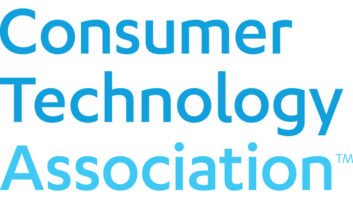After listening to the keynote speeches of Microsoft’s Bill Gates and Palm’s Carl Yankowski at International CES, it finally dawned on me that the old wall between the consumer electronics and personal computer businesses has begun to crumble. By that I mean the perception of separation between the CE and PC businesses is crumbling, because in reality, the rollout of all types of digital products in the past five years has broken that wall.
The expected boom in home networking, with servers storing entertainment and data of households, which will be downloaded to handheld devices of all types, digital TVs, home audio systems, computers and, heck, even refrigerators, will soon be accepted as home theater is today.
What is happening is that the computer business has become a category of the consumer electronics industry. (That almost audible shutter you have just sensed comes from the many veterans of the PC business who abhor the concept.)
Until a few years ago the “high tech” business was computers, with consumer electronics being considered a low-tech business. You still read and hear that perception from many in the consumer media, who began covering technology by attending Comdex in the early ’90s. They go to CES and start their reports talking about the latest cute “gizmos and gadgets” that have debuted in Vegas.
The reality is that digital technology has changed all the rules. Traditional consumer electronics products-audio, video, car stereo-are all just as sophisticated as computers.
But the purpose of this column is not to say that one type of product is more advanced than another. What has emerged is one industry: the consumer technology industry.
In Gates’ keynote, titled “The Emerging Digital Lifestyle,” he noted that the PC’s future is as a digital media center, with the control following the user, not the computer. He also stressed that ease of use must be in the forefront to fight what he called “technology schizophrenia.” That phrase means too many passwords and too much disparate information to access anything.
Yankowski hit on a similar theme in his keynote, stressing that ease of use and reliable design should be the most important traits in consumer technology. “Computers were never designed with average people in mind,” he said. “Why should a consumer know what a ‘C’ drive is?”
Microsoft has several stakes in the consumer electronics industry, the most significant being its investment in Thomson Consumer Electronics. Yankowski, who was previously president of Sony Electronics, has brought that sensibility to his new job. More former computer companies are introducing consumer electronics products, while traditional CE makers are debuting more high-tech products than ever before.
Will the exchange become so complete that instead of going to the International Consumer Electronics Show in Vegas a few Januarys from now, we will be attending the International Consumer Technology Show run by CEA? Probably not. The technology changes are so traditionally rampant in CE and computers that a name change will not even be necessary.













